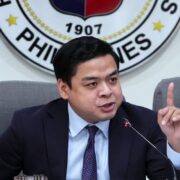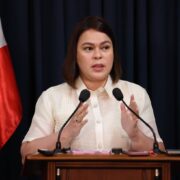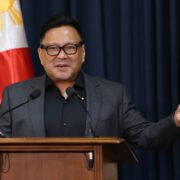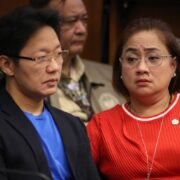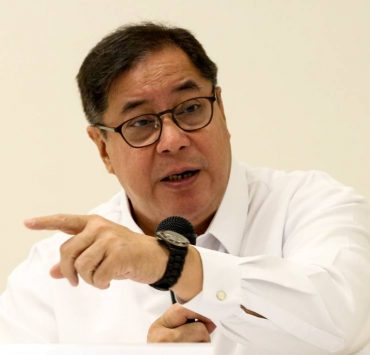Groups welcome SC TRO on PhilHealth fund transfer

The Supreme Court has issued a temporary restraining order (TRO) preventing the further transfer of the remaining P29.9 billion of the total P89.9 billion in excess funds of the Philippine Health Insurance Corp. (PhilHealth) to the national treasury, a decision met with enthusiasm by petitioners, including lawmakers, former justices, members of the medical community, academics and various civil society organizations.
At a press briefing on Tuesday, Supreme Court spokesperson Camille Ting said that the TRO, effective immediately, aims to “prevent the transfer of more funds from PhilHealth to the national treasury.”
As of Oct. 16, a total of P60 billion had already been transferred to the Bureau of Treasury. With the TRO in place, the scheduled remittance of the final tranche next month will not proceed.
During Tuesday’s en banc session, Ting said the high court consolidated the latest petition from the group led by 1Sambayan Coalition (G.R. No. 276233) filed on Oct. 16 with two earlier cases filed by Sen. Aquilino “Koko” Pimentel III (G.R. No. 274778) and Bayan Muna chair Neri Colmenares (G.R. No. 275405) in August.
All three petitions challenged the return of excess funds from government-owned and -controlled corporations (GOCCs) to the national treasury for unprogrammed appropriations.
Return of transferred funds
While the Supreme Court did not specify which petition it granted, all three sought a TRO, with two additionally requesting a status quo ante order to restore the previous situation before the contested actions happened.
According to Ting, “it’s still possible” for the high court to act on the petitioners’ request for a status quo ante order.
Health reform advocate Dr. Tony Leachon, who was among the first personalities who exposed the clandestine transfer of the excess PhilHealth funds, said the TRO was an “initial victory” and that they would wait until the high court issues a status quo ante order “allowing these vital funds to be used for the health-care needs of Filipinos as intended under the universal health care law.”
“We, the petitioners, thank the Supreme Court for the issuance of the TRO. This saves the poorest of the poor of Filipinos, numbering tens of millions, whose only source of lifesaving medicine is the PhilHealth,” said retired Senior Associate Justice Antonio Carpio, who led 1Sambayan’s petition.
For Bayan Muna, the temporary halt on fund transfers was a “significant victory for the Filipino people,” particularly for those who depend on PhilHealth for their health-care needs.
Pimentel welcomed the development, saying: “At least, the PhilHealth funds will not be dissipated pending the resolution of the case.”
Legal basis
The Department of Finance (DOF) on Tuesday said that it would respect the Supreme Court’s decision to issue a TRO.
“As a public servant myself, I recognize the right of every citizen to seek redress from the courts. Rest assured that the DOF will fully comply with the order of the Supreme Court,” Finance Secretary Ralph Recto said in a statement.
Recto said that he was looking forward to the chance to clarify the issues during the oral arguments set by the high tribunal in January to help resolve all concerns definitively.
He reiterated that the DOF’s move to sweep the idle, unused and excess funds of GOCCs was a mandate under Republic Act No. 11975, or the General Appropriations Act (GAA) of 2024, which was approved by Congress.
“We reiterate that before proceeding with the utilization of GOCC idle funds, our agency exercised due diligence and consulted extensively with the government’s legal experts. These include the Governance Commission for GOCCs, the Government Corporate Counsel and the Commission on Audit. These efforts were undertaken to ensure full compliance with our laws,” Recto added.
He noted that the DOF has received positive legal advice stating that the unused government subsidies from PhilHealth did not count as reserve funds and that these funds were not considered income that the Universal Health Care Act limits for use by the national government as a general fund.
PhilHealth spokesperson Dr. Israel Francis Paragas said they fully respect and would abide by the order of the Supreme Court.
Allegations
The Supreme Court has scheduled oral arguments on Jan. 14, 2025, to address key issues in the petitions, which specifically question the constitutionality of Section 1(d) of XLIII of the GAA 2024 and DOF Circular No. 003-2023, both of which permit the return of excess reserve funds from GOCCs to the national treasury for unprogrammed appropriations.
In their petition filed on Aug. 2, Pimentel and a coalition of doctors and public health advocates argued that the transfer of PhilHealth funds infringed upon the right to health of the Filipino people.
“By taking out the alleged ‘unused funds’ which are pooled funds from members’ contributions, whether direct or indirect, Congress, the Department of Finance, and especially PhilHealth, deprive the Filipino people access to quality and affordable health-care goods and services,” they said.
Bayan Muna, which filed the second petition on Aug. 26, called for the Supreme Court to nullify the P449.5-billion increase in unprogrammed appropriations in the 2024 budget.
1Sambayan’s petition introduced new allegations against Recto, claiming he committed “technical malversation and/or plunder” by ordering the transfer of PhilHealth’s excess funds to the national treasury. —WITH REPORTS FROM MARIEDEL IRISH U. CATILOGO AND DEXTER CABALZA


